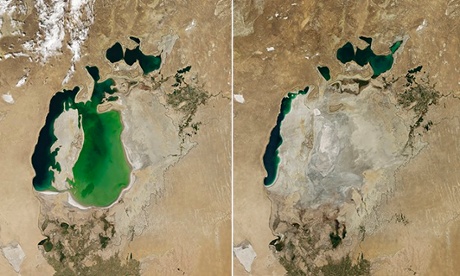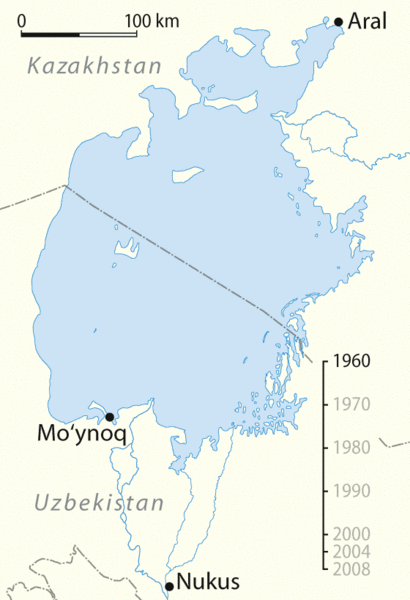World War Two
Published 4 Nov 2022Even as the Allied powers condemn the German crimes against humanity, their recent victories are in part thanks to the massive system of forced labour built by Joseph Stalin’s Soviet Union. Over one million prisoners work in the Gulag to power the Soviet war economy.
(more…)
November 7, 2022
Inside the Gulag System – WW2 Special
May 16, 2015
Kazakhstan’s looming succession crisis
At The Diplomat, Catharine Putz wonders if there can be a Kazakhstan without President Nursultan Nazarbayev:
In a new report, the International Crisis Group says that Kazakhstan is facing a stress test – its only president since independence turns 75 this summer and Russia’s “actions in Ukraine cast a shadow over Kazakhstan.” To date, the report notes, Kazakhstan’s devotion to continuity has trumped needed democratic reforms. Nursultan Nazarbayev’s recent landslide reelection demonstrates his absolute centrality to political stability in the country and could prove to be “a serious vulnerability.”
The report encourages Kazakhstan to act soon – reconfirming its independence from Russia and lifting the veil on government operations in order to reassure citizens and foreign powers “that the state is not the work of one man or an exclusive ethnic project and that the transition to a post-Nazarbayev era will be smooth.” The report recommends that Kazakhstan continue to pursue a multi-vector foreign policy by engaging equally with Russia and the EU; take a “recognizable role” in pursuing a solution to the Ukraine crisis; give senior officials – other than Nazarbayev – some stage time; practice restraint in issues of language, ethnicity, and nationalism; and broaden economic development beyond Astana.
This is not the first time parallels have been drawn between Ukraine and Kazakhstan. Kazakhstan, like all of Central Asia, had a sizeable ethnic Russian population when the Soviet Union dissolved. That population has dwindled; in a country of 17 million a 2009 census determined that ethnic Russians accounted for 23 percent, ethnic Kazakhs more than 60 percent. This is a more modern development, as it wasn’t until the mid-1980s that the ethnic Kazakh population bypassed that of ethnic Russians in the region. Now, most ethnic Russians are concentrated along the northern border with Russia.
How do you say “Après moi, le déluge” in Kazakh?
October 1, 2014
The Aral Sea almost completely dried out in August
Enjoli Liston reports on the former body of water in the Guardian:

The Aral Sea in 2000 on the left and 2014 on the right. Photograph: Atlas Photo Archive/NASA
A large section of the Aral Sea has completely dried up for the first time in modern history, according to Nasa.
Images from the US space agency’s Terra satellite released last week show that the eastern basin of the Central Asian inland sea — which stretched across Kazakhstan and Uzbekistan and was once the fourth largest in the world — was totally parched in August. Images taken in 2000 show an extensive body of water covering the same area.
“This is the first time the eastern basin has completely dried in modern times,” Philip Micklin, a geographer emeritus from Western Michigan University told Nasa. “And it is likely the first time it has completely dried in 600 years, since Medieval desiccation associated with diversion of Amu Darya to the Caspian Sea.”
Note that this isn’t primarily due to climate change, although it is a man-made environmental disaster:
In the 1950s, two of the region’s major rivers — the Amu Darya and and the Syr Darya — were diverted by the Soviet government to provide irrigation for cotton production in Uzbekistan and Turkmenistan, starving the Aral. It has been diminishing ever since, with the sea level dropping 16 metres between 1960 and 1996, according to the World Bank. Water levels are believed to be down to less than 10 per cent of what they were five decades ago.
Wikimedia has a dramatic illustration of the diminishing border of the Aral Sea between 1960 and 2008:
April 27, 2013
The Caspian Sea as a potential trouble zone
Strategy Page provides some background on the possibility of conflict on the Caspian in the post-Soviet era:
The Caspian Sea, long a Russian lake, is now witnessing a naval arms race. Before the Soviet Union broke up in 1991, the only nations bordering the Caspian were Russia (with most of the coastline) and Iran. But now those two nations have been joined by parts of the Soviet Union that have become independent states (Kazakhstan, Azerbaijan and Turkmenistan). It goes downhill from there.
Iran shares a land border with Azerbaijan and has a historical claim on Azerbaijan. In the 19th century Azerbaijan (as in the area occupied the Azeris, a Turkic people) was divided by Russia and Iran. Currently about a quarter of the Iranian population is Azeri, but the Azeris of Azerbaijan believe all Azeris should be part of an independent Azerbaijan. This was how it was for centuries before Turkey, Russia and Iran began seeking to conquer Azerbaijan. Some Iranian Azeris like this idea and Iran is always looking for ways to make Azerbaijan back off. So Iran is building up its Caspian naval forces, which is annoying Russia more than Azerbaijan.
The Iranian buildup includes a new corvette, an Iranian built 1,400 ton ship. Azerbaijan responded by buying $1.6 billion worth of weapons from Israel (which angered Iran a great deal.) Among the items ordered were Gabriel anti-ship missiles. These are 522 kg (1,150 pound) weapons with a range of 36 kilometers. Azerbaijan will use these to protect its Caspian Sea coast from the growing number of Iranian warships being introduced in the area. Most of the Iranian Caspian “fleet” consists of small patrol boats. Some are armed with anti-ship missiles but they are basically coast guard type craft.
What really controls the Caspian is aircraft and Russia has the most of those. Russia also has the only water link to the ocean and thus the ability to bring in more warships on short notice. These, plus Russia’s larger air force gives Russia the edge.




